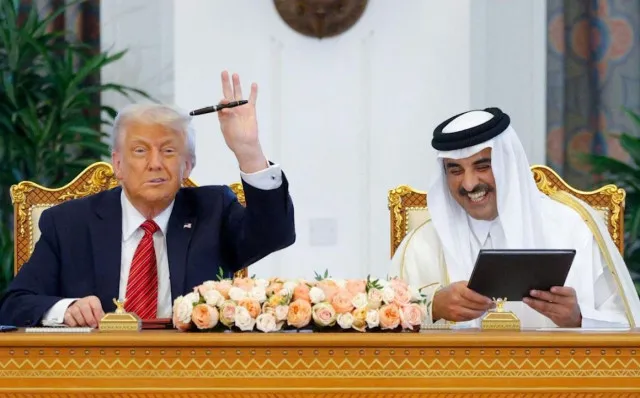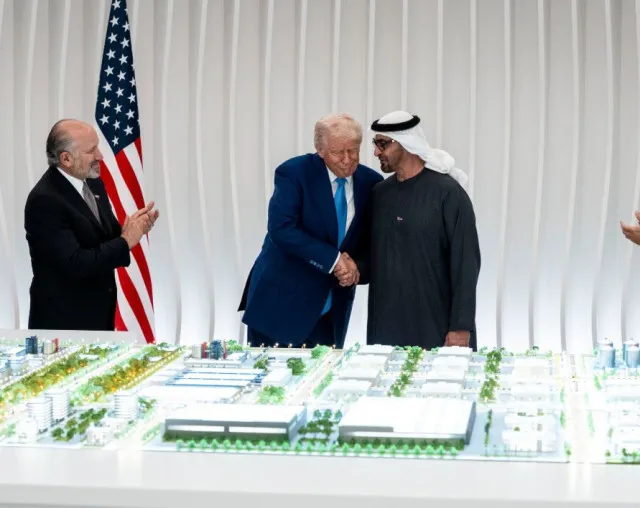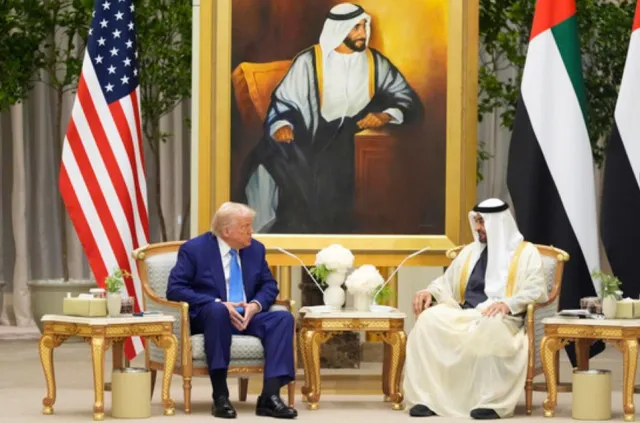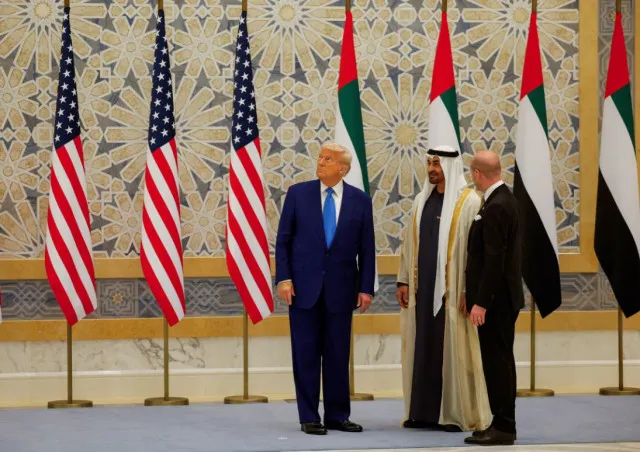Trump secures historic agreement with uae to build a massive AI campus, bypassing prior tech export restrictions.
President Trump has finalized a landmark AI agreement with the United Arab Emirates, creating the largest artificial intelligence hub outside America.
The deal lifts prior technology transfer restrictions and signals renewed U.S.-UAE cooperation in a sensitive and rapidly advancing field.
Trump was joined by Nvidia CEO Jensen Huang and UAE President Sheikh Mohamed bin Zayed in Abu Dhabi.

The event featured talks and televised appearances as the agreement was officially signed at the UAE presidential palace.
AI campus to host 2M Nvidia chips across 10 square miles
The centerpiece of the deal is a 10-square-mile AI campus in Abu Dhabi, powered by 5 gigawatts of energy.
This massive infrastructure can support 2.5 million Nvidia B200 chips, according to Rand Corporation analyst Lennart Heim.

The project is spearheaded by Abu Dhabi’s G42 but will be operated by U.S. companies offering American-managed cloud services.
This setup ensures U.S. oversight and compliance with export control laws, Commerce Secretary Howard Lutnick confirmed.
New AI deal permits Nvidia chip exports, U.S. data center investment.
The UAE will reportedly be allowed to import up to 500,000 advanced Nvidia AI chips per year starting in 2025.
While Nvidia and the UAE foreign ministry declined comment, insiders confirmed the chips will support U.S.-monitored applications.
In return, the UAE commits to investing in U.S. data centers equal in scale and performance to the Abu Dhabi site.
This mutual investment strengthens bilateral ties while reinforcing tech security, the White House emphasized in a statement.
The AI agreement “includes the UAE committing to invest in, build, or finance US data centers that are at least as large and as powerful as those in the UAE,” the White House said.

“The agreement also contains historic commitments by the UAE to further align their national security regulations with the United States, including strong protections to prevent the diversion of US-origin technology.”
Trump shifts export rules to give UAE advanced chip access.
Trump’s AI czar David Sacks stated export controls were never meant to punish allies like the UAE or Saudi Arabia.
He called Biden-era restrictions overly broad and said trusted partners should benefit from deeper cooperation in AI innovation.
This marks a strategic shift in U.S. technology policy to balance commercial interests with national security safeguards.
The agreement includes “historic commitments” from the UAE to enhance national security regulations and protect U.S.-origin technologies from diversion.
Tech giants including qualcomm, amazon, and microsoft are partnering with the uae on ai and cybersecurity projects
Qualcomm will launch an AI-focused engineering center as part of the broader deal, U.S. fact sheets revealed.

Amazon Web Services will work with UAE partners to boost cybersecurity capabilities and promote regional cloud adoption.
Microsoft has already invested $1.5 billion in G42, while G42 and MGX have backed OpenAI and Elon Musk’s xAI.
These partnerships reflect the UAE’s ambition to become a global leader in artificial intelligence development and infrastructure.
Deal marks new US-UAE tech era.
This agreement represents a strategic recalibration of the UAE’s tech policy. While maintaining trade ties with China, the UAE is now clearly aligning its **compute, cloud, and chip infrastructure** with U.S. protocols.
“This shift enables (the UAE) to deepen its technology partnership with the US while still preserving trade ties with China,” said Mohammed Soliman, senior fellow at the Middle East Institute.
“It doesn’t mean abandoning China but it does mean recalibrating tech strategy to align with US standards and protocols where it matters most: compute, cloud, and chip supply chains,” he said.